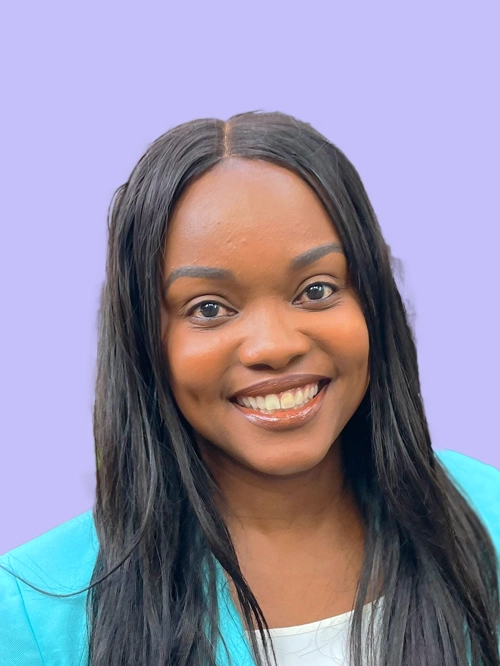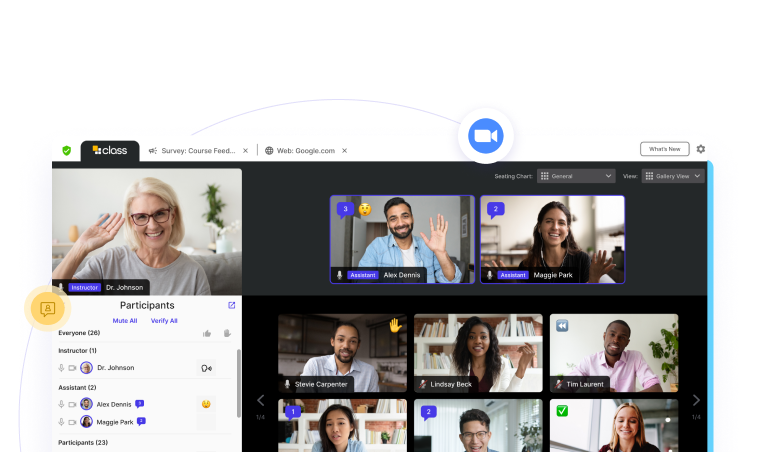
Nadia Isata is the Head of Education Sales at Class, leading new growth and post-implementation customer success. With 20 years of experience in higher education, she has driven EdTech innovation to modernize academic processes. In 2023, she launched the Innovation Advisory Group and served on the Steering Committee for the Leading Academic Change 2.0 National Survey.

Nadia Isata is the Head of Education Sales at Class, leading new growth and post-implementation customer success. With 20 years of experience in higher education, she has driven EdTech innovation to modernize academic processes. In 2023, she launched the Innovation Advisory Group and served on the Steering Committee for the Leading Academic Change 2.0 National Survey.

The demographics of higher education continue to shift at a startling pace. In fact, an enrollment cliff is expected to drastically alter not only the total number of available students for institutions, but also the demographics they represent. Additionally, the long-heralded cliff may not be the only one coming for higher education, as noted by the Chronicle of Higher Education. As institutions look to minimize the impact of these drop-offs, it has become more important than ever to incentivize nontraditional learners to continue their education. However, doing so requires an acceptance that traditional learning models are no longer sufficient for the ever-evolving needs represented by this new set of learners.
Recently, Class brought together a panel of higher education experts to discuss the impact innovative approaches to education can have on institutions of higher learning. Amongst the topics discussed was the reality that a shift in the delivery of academics may be crucial for the survival of many colleges and universities.
Dr. Melissa Vito, Vice Provost of Academic Innovation at the University of Texas–San Antonio, explains how her institution is grappling with this reality, “We know that our current workforce may need different types of skills moving forward. We've been doing things—playing with attaching a project management micro-credential to some of our liberal arts programs and degrees—to see what that means for students. We're doing some research with our institutional research team on, ‘Does it make a difference for students in terms of success or clearly in terms of careers?’ I look for opportunities to continue to normalize, at a macro level, that we are in a changing environment and we need to see where there are—both challenges that we address, but opportunities to really move forward more quickly.”
This exploration of varied delivery models, credentialing changes, and more are all attempts to address the need to better serve student populations that are changing their own expectations of how and when they will continue their education. Anne Keehn, CEO and Founder of Quantum Thinking, as well as moderator for our panel, reinforces this notion, adding, “I think enhancing teaching and learning through direct faculty support, funding, and supporting new academic initiatives—adopting and developing new academic technology, and experimenting with new models of learning [is crucial].”
Dr. Edward Maloney, Executive Director of the Center for New Designs in Learning and Scholarship at Georgetown University, has already seen this desired shift in the areas his institution serves outside of traditional undergraduate coursework. He points out, “Graduate programs, professional programs—where you're trying to reach students at different stages and parts of their lives—online [learning platforms] become a much more viable option.”
Dr. Cait Hayward, Director of Research and Analytics at the University of Michigan’s Center for Academic Innovation, echoes how a shift in delivery—for the right populations—can seize an incredible opportunity for colleges and universities, explaining, “Online didn't work for everybody in the pandemic, but it did for some folks. Particularly as your life takes you to different places where you don't want to relocate to go get a degree, you want to stay right where you are with family and with a job you like, but you want to grow [online programming is a fit]. And so, starting to really build pathways there, I think, is going to be absolutely crucial [for institutions].”
To Dr. Maloney’s point that non-undergraduate degree paths already have a greater interest in online degree programs, Forbes found that 23.9% of undergraduate students take fully online degree programs, whereas 38.7% of graduate students enroll in fully online degree programs. So, while more undergraduate students (54.4%) take at least some online courses compared to graduate students (53.5%), nontraditional populations, for a variety of well-documented reasons, look to online degree programs to avoid physically relocating for their education. The ability to establish and maintain innovative, online-oriented coursework serves as a valuable pathway for institutions to not only stave off the enrollment cliff’s impact, but to successfully cater to a population with increased growth potential.
As noted by the panelists, innovative centers for academic growth and success can utilize helpful analytics to reinforce the value of their impact. Demonstrating not only the opportunities present, but also the pathways to greater success, merges colleges and universities’ need for innovation alongside mission-oriented results. As Dr. Hayward acknowledges, “I think that focus on student success, really broadly across campus, and really doing it through a data-informed lens is going to be a pretty top priority [for institutions moving forward].”
Is your institution not only looking to prioritize innovation, but demonstrate the direct results created by those resources? Reach out to a Class team member today, and let’s explore how a partnership forged in analytics and insights can take a shift toward an online learning platform from “high potential” to evidence-based, data-backed results.

Nadia Isata is the Head of Education Sales at Class, leading new growth and post-implementation customer success. With 20 years of experience in higher education, she has driven EdTech innovation to modernize academic processes. In 2023, she launched the Innovation Advisory Group and served on the Steering Committee for the Leading Academic Change 2.0 National Survey.

Nadia Isata is the Head of Education Sales at Class, leading new growth and post-implementation customer success. With 20 years of experience in higher education, she has driven EdTech innovation to modernize academic processes. In 2023, she launched the Innovation Advisory Group and served on the Steering Committee for the Leading Academic Change 2.0 National Survey.
Get our insights, tips, and best practices delivered to your inbox

Sign up for a product demo today to learn how Class’s virtual classroom powers digital transformation at your organization.

Features
Products
Integrations